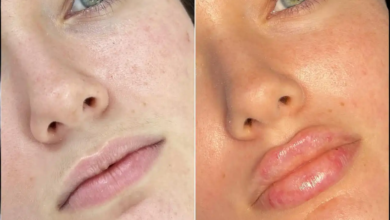
Female fertility, the ability to conceive and carry a child to term, is a topic of immense importance and interest for many women. Whether you’re actively trying to conceive or simply planning for the future, understanding the factors that influence female fertility is essential. In this guide, we delve into various aspects of female fertility, including factors affecting it, tips for enhancing fertility, and common questions women have about their reproductive health.
Factors Affecting Female Fertility
Female fertility is influenced by a multitude of factors, both physiological and environmental. Understanding these factors can empower women to make informed decisions about their reproductive health. Factors affecting female fertility include:
Age and Female Fertility
As women age, their fertility naturally declines. This is primarily due to a decrease in the quantity and quality of eggs produced by the ovaries. Women are most fertile in their 20s and early 30s, with fertility starting to decline significantly after the age of 35.
Health and Lifestyle
Maintaining a healthy lifestyle is crucial for optimal fertility. Factors such as obesity, smoking, excessive alcohol consumption, and poor nutrition can negatively impact female fertility. Conversely, regular exercise, a balanced diet, and managing stress can enhance fertility.
Reproductive Health Conditions
Certain reproductive health conditions can affect female fertility. Conditions such as polycystic ovary syndrome (PCOS), endometriosis, and pelvic inflammatory disease (PID) can interfere with ovulation or damage the reproductive organs, making conception more difficult.
Hormonal Imbalances
Hormonal imbalances, such as irregular menstrual cycles or thyroid disorders, can disrupt the ovulation process and affect female fertility. It’s essential for women experiencing hormonal issues to seek medical evaluation and treatment.
Enhancing Female Fertility
While fertility declines with age, there are steps women can take to optimize their reproductive health and enhance fertility potential. Here are some tips for enhancing female fertility:
Maintain a Healthy Weight
Maintaining a healthy weight through proper nutrition and regular exercise can improve fertility outcomes. Both obesity and being underweight can negatively impact fertility, so achieving a healthy weight is key.
Track Your Menstrual Cycle
Understanding your menstrual cycle and tracking ovulation can help maximize your chances of conception. Ovulation predictor kits and fertility tracking apps can assist in identifying the most fertile days in your cycle.
Limit Exposure to Harmful Substances
Avoiding exposure to harmful substances such as tobacco, alcohol, and recreational drugs is essential for optimizing fertility. These substances can negatively impact egg quality and reproductive function.
Manage Stress
Chronic stress can disrupt hormonal balance and interfere with ovulation. Finding healthy ways to manage stress, such as meditation, yoga, or therapy, can positively impact fertility.
Seek Medical Evaluation
If you’re struggling to conceive, don’t hesitate to seek medical evaluation and assistance. A fertility specialist can conduct tests to identify any underlying issues and recommend appropriate treatments.
FAQs (Frequently Asked Questions)
Here are some common questions women have about female fertility:
What age is considered optimal for female fertility?
As a general guideline, women are most fertile in their 20s and early 30s. Fertility starts to decline significantly after the age of 35.
Can lifestyle factors affect female fertility?
Yes, lifestyle factors such as smoking, excessive alcohol consumption, poor nutrition, and obesity can negatively impact female fertility.
How can I track my ovulation?
Ovulation predictor kits, fertility tracking apps, and monitoring changes in cervical mucus can help you identify your most fertile days.
Are there any natural remedies to enhance fertility?
While there’s limited scientific evidence, some women find acupuncture, herbal supplements, and fertility-focused diets helpful in enhancing fertility.
When should I seek help if I’m having trouble conceiving?
If you’re under 35 and have been trying to conceive for over a year without success, or if you’re over 35 and have been trying for six months without success, it’s advisable to consult a fertility specialist.
Can stress affect female fertility?
Yes, chronic stress can disrupt hormonal balance and interfere with ovulation, potentially impacting fertility.
Conclusion
Understanding female fertility is essential for women of all ages. By being aware of the factors that influence fertility and implementing strategies to optimize reproductive health, women can empower themselves to make informed decisions about their fertility journey. Remember, every woman’s fertility journey is unique, and seeking support from healthcare professionals when needed can make all the difference in achieving your reproductive goals.


